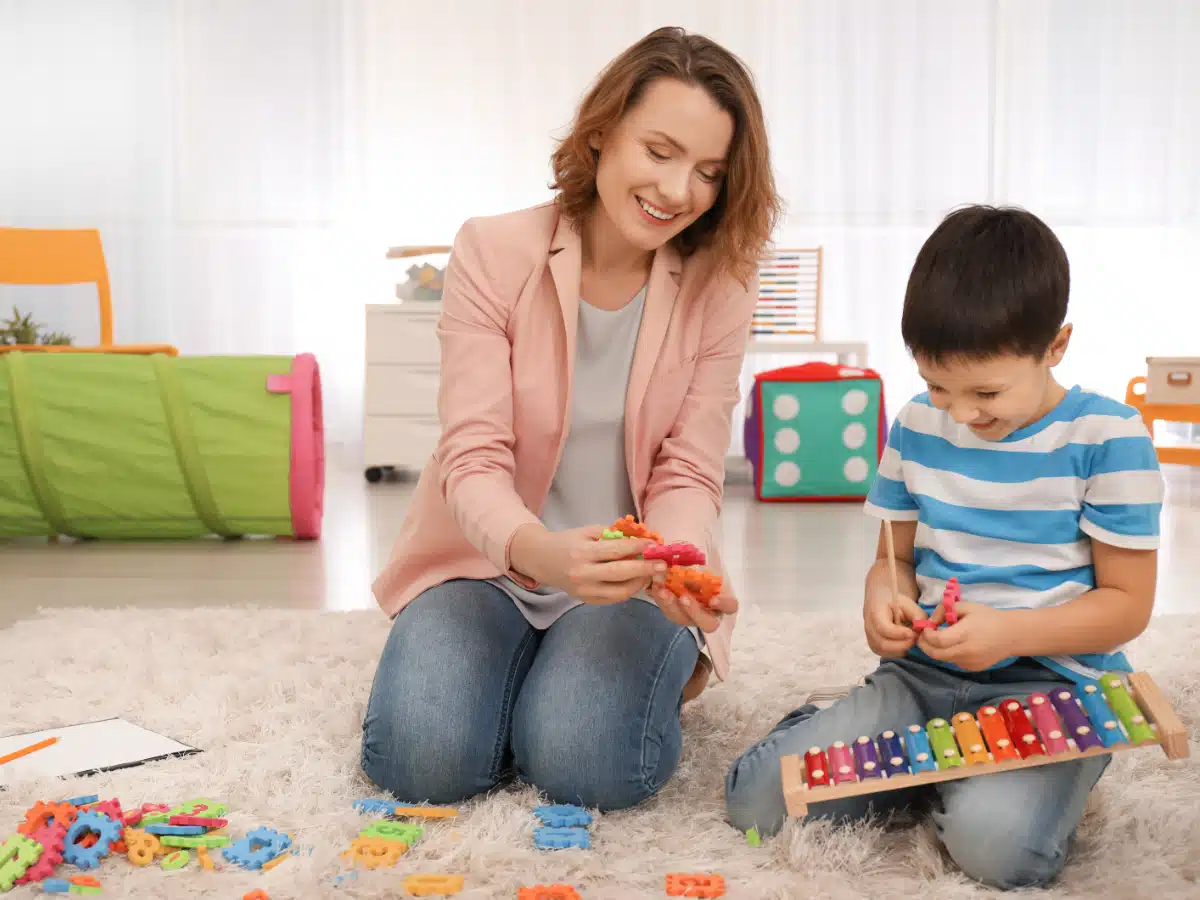Navigating the world of autism therapy options for your child is full of uncertainty and many important decisions to be one. One of these important decisions you may face is whether to opt for in-home ABA therapy or in-clinic ABA therapy.
Applied Behavior Analysis (ABA) therapy is renowned for its customizability, making it adaptable to various settings. Both ABA in-home and in-clinic therapies have their unique advantages, and the choice ultimately depends on the individual needs and goals of the child undergoing therapy.
Before we get into which approach is right for your child, let’s dig deeper in ABA therapy as a whole:
What is ABA Therapy?
ABA therapy is a comprehensive and individualized approach to treating autism spectrum disorder (ASD). It focuses on improving specific behaviors and skills by breaking them down into smaller, manageable components. This therapy can be provided in different settings, including your child’s home or a specialized clinic.
In-Home ABA Therapy
Autism therapy at home offers a familiar and comfortable environment for your child. It allows for therapy sessions to be integrated seamlessly into your child’s daily routine, promoting generalization of skills across various settings. ABA in-home therapy also provides opportunities for family involvement and parent training, fostering a collaborative approach to treatment.
One of the significant benefits of autism therapy at home is its ability to target skills in real-life situations. For example, social skills can be practiced in natural social settings at home, such as during family meals or playtime. Additionally ABA in-home therapy reduces the stress and anxiety that some children may experience in unfamiliar environments.
In-Clinic ABA Therapy
On the other hand, in-clinic ABA therapy offers a structured and controlled environment specifically designed for therapeutic interventions. Clinic-based therapy provides access to a wide range of resources, specialized equipment, and professional expertise that may not be available at home. The clinic setting for ABA therapy also facilitates interactions with other children and therapists, promoting socialization and peer learning.
In-clinic therapy sessions are often structured and focused, allowing for intensive and concentrated interventions. Children attending clinic-based therapy benefit from a consistent and structured routine, which can be beneficial for learning and skill acquisition.
Choosing the Right Option
The decision between autism therapy at home and in-clinic ABA therapy depends on various factors, including your child’s individual needs, therapy goals, family preferences, and logistical considerations. Some families may opt for a combination of both settings, depending on the specific goals of each therapy session.
Personalized ABA Therapy Options for Your Kid
At Harmony Behavioral Health, we offer both in-home and in-clinic ABA therapy options to cater to diverse needs. Our experienced team works closely with families to develop personalized ABA therapy plans that align with their goals and preferences. Whether it is autism therapy at home or in a clinic, our focus remains on providing effective and impactful therapy to help each child reach their full potential.
If you are unsure about which option is best for your child, we are here to help. Contact us today to schedule a consultation and learn more about our customized ABA therapy services tailored to meet your child’s unique needs!









